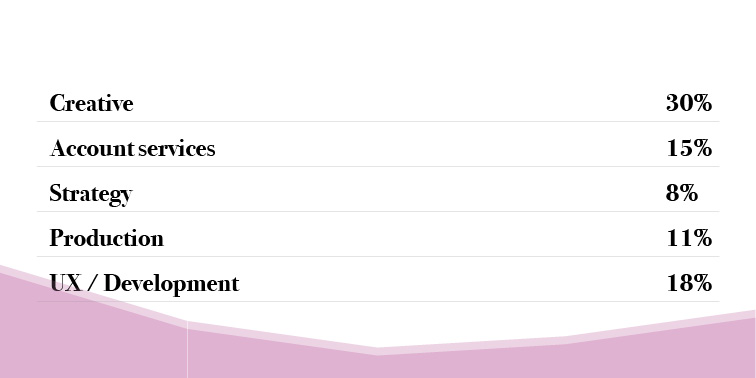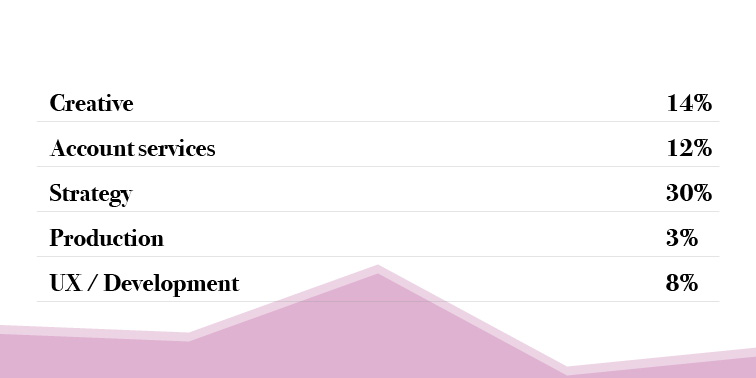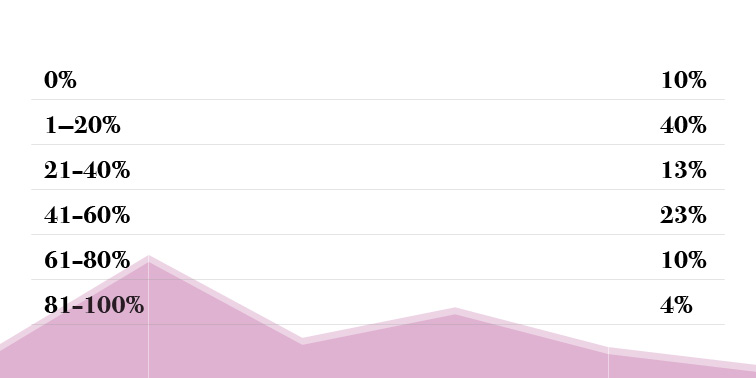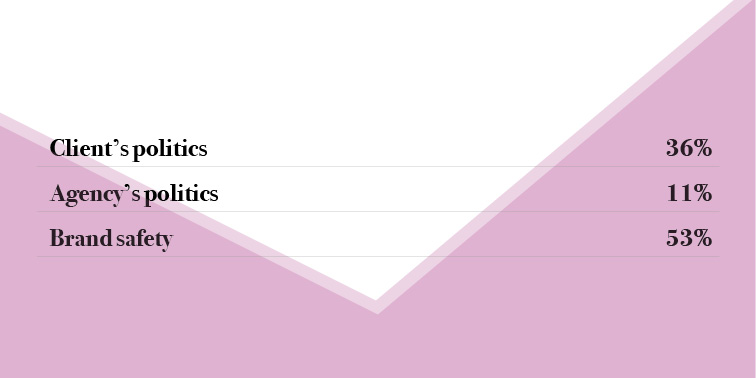Last chance to save on Digiday Publishing Summit passes is February 9
Last month, we gathered some of the agency industry’s biggest names in Nashville, Tennessee, for the Digiday Agency Summit, where they discussed the gripes, challenges and opportunities for the advertising agency industry. We surveyed them to get a pulse of the industry. Here’s what we found.
Strategy talent is in high demand
Agencies are certainly more focused on strategy, a skill that used to be known as “planning.” Strategy has started taking up a bigger piece of the pie inside most shops. One big reason is the rise of digital advertising, which agency executives would contend demands more upfront planning of communications journeys than non-digital advertising would.
Most siloed:

Many agency employees also worry that leadership is not completely in touch with what is going on, which is making agencies lose business. “Agency leads have been in game for 30 years and they don’t understand the basics of digital,” one executive said in Nashville. “There is a tension point because clients are giving work to others, or taking it in-house. We need fresher, younger people leading.”
Most difficult to hire for:

Payment terms continue to get onerous
Everyone’s getting squeezed. What began as a way to cut costs during the 2008 financial crisis has turned into business du jour, with brands extending payment terms to as long as 120 days in some cases. It’s caused some issues in the business: Grey recently resigned Coty because Coty insists on 120-day billing terms. Essentially, agencies are being treated like banks. And everything goes downhill from there: Because liability is sequential, agencies in turn can’t pay their production partners or publishers, who in turn can’t pay freelance staff, and so it goes. Almost everyone surveyed is seeing a client ask for extensions in payment cycles.
It’s a contentious issue. The rise of procurement and ruthless cuts in order to drive efficiencies has many agencies with their backs up. At the agency town hall in Nashville, many people discussed at length how much more complicated it’s all gotten. “Procurement is more involved” than ever before said one attendee.
Another C-suite agency executive said that the bigger problem is the way agencies get paid — for their ideas. And the way that is calculated is complicated. “The problem with the business was it was birthed in an era where money was made in media. We have stupidly siloed it by creating big media conglomerates.” Things are slowly changing; more creative agencies are adding media capabilities and vice versa. “But the only thing we have are our ideas — and the ideas are process. We all want to get paid for brilliance but how do we change how exactly the brilliance is calculated?”
But ultimately, there is little they can do, since they are beholden to the client contract. But there do result some unorthodox clauses in contracts, like discounts if clients pay on time.
Proportion of clients asking for extension in payment cycle:

Politics at play
We also asked our executives in attendance about blacklists. Ad blacklists are of growing interest with the rise of alt-right, extreme-left and fake news sites among advertisers, who are equally afraid of a social media callout that snowballs into a real movement as they are of actually funding anything egregious. Still most agencies that execute blacklists say that it’s about “brand safety,” while quite a few say it’s about the client’s own political beliefs.
Blacklists are a product of…

More in Marketing

In Q1, marketers pivot to spending backed by AI and measurement
Q1 budget shifts reflect marketers’ growing focus on data, AI, measurement and where branding actually pays off.

GLP-1 draws pharma advertisers to double down on the Super Bowl
Could this be the last year Novo Nordisk, Boehringer Ingelheim, Hims & Hers, Novartis, Ro, and Lilly all run spots during the Big Game?

How food and beverage giants like Ritz and Diageo are showing up for the Super Bowl this year
Food and beverage executives say a Super Bowl campaign sets the tone for the year.





